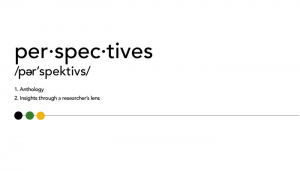There are an abundance of experiences that contribute to the shaping of one’s self-esteem: childhood development, environments, opportunities, circumstances, and importantly, our innate ability to value and appreciate our own worthiness. According to Dr. E. Paul Torrence:
“Self-esteem, high or low, tends to be a generator of self-fulfilling prophesies.”
Along the path of maturity, life’s situations create a persevering model from which we operate and evaluate our competencies. These experiences define implicit expectations about what is possible and acceptable. Although a thorough exploration of self-esteem and self-worth are far too complex to report here, a powerful influence worthy of reflection is: People!
The people we choose to surround ourselves with create, affirm, or reject whether our behavior aligns with what is appropriate. Should we not then be highly selective about who we allow into that space?
Our personal friendships are a sound predictor of personal success and happiness. We have a choice: invest in people who enhance our lives and divorce our suck-the-life-out-of-us individuals?
Awareness, as with all things, is the beginning of transformation. According to life coach, Stacia Pierce, we should consider choosing friends who [adapted]:
You can be purpose partners with. A purpose partner is someone with whom you can share your goals and dreams, and they will encourage you toward achieving them.
Shares similar values. While you can respect others’ opinions and differences, choosing friends that hold similar values to yours will keep you from compromising… your values and the standards that govern your life. When friends have similar values, they can help keep each other accountable.
Bring balance in areas where you are weaker. We all have our strengths and weaknesses. Tap into the talents, skills and abilities of those that have expertise in areas that you don’t… when you utilize each other’s strengths, everyone wins.
Stretch, motivate and encourage you. No one wants a friend that is negative or down all the time. It’s usually the people that are uplifting and positive that we naturally want to be around. The best types of friends will be there to offer a listening ear and help you put a positive spin on any situation.
Have a thirst for knowledge. Life is about learning, growing and advancing. It’s always great to have a friend who can recommend a good book or share information. Friends who are avid readers are usually great conversationalists and fun to talk to as well.
Celebrate your success. True friends celebrate you, not just tolerate you. A friend celebrates every milestone and accomplishment on your journey. They are genuinely happy to see you succeed.
Are “get-it” people. Get-it people are serious about their goals and serious about success. They don’t treat life casually or waste time on frivolous pursuits. They take fast action and get things done. If you consider yourself a get-it person, it’s important that you have friends who operate the same way.
Give what you expect to get. Every healthy friendship possesses give-and-take. If you expect great friends, you first have to be one yourself. If you live by the Golden Rule of treating others as you would want to be treated, then you won’t be disappointed – you will find your friendships fulfilling and rewarding.
Associate higher. If you are focused on taking your life/career/business to the next level, then associate with people on that level. Step outside your comfort zone and spend time with friends who can expose you to greater things, new information, and a higher level of living.
As stated by Brian Tracey: “It is hard to soar with eagles… if you surround yourself with turkeys.”
—
Perspectives represents voices from the research industry, academia, and medicine. Our intent is to provide a collective news feed for elite professionals interested in market research diligence. Brevity and relevance is our mantra. Look for Perspectives in your inbox every other Tuesday. We promise to deliver compelling and brief content to provoke and enlighten.
With respect and gratitude,
Barbara & your research team

